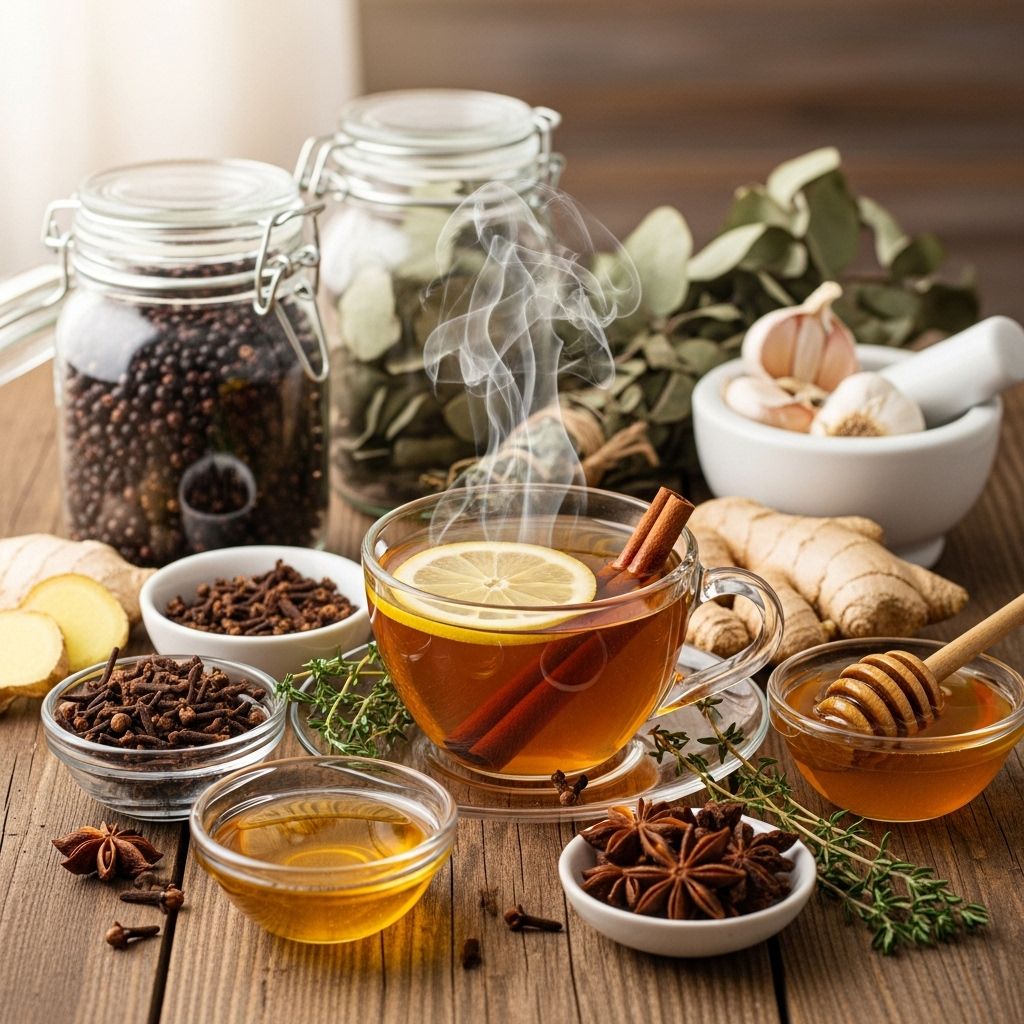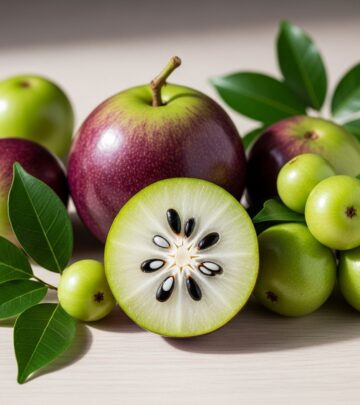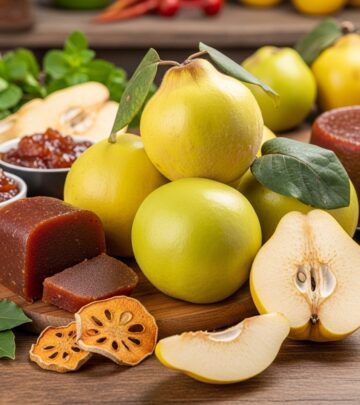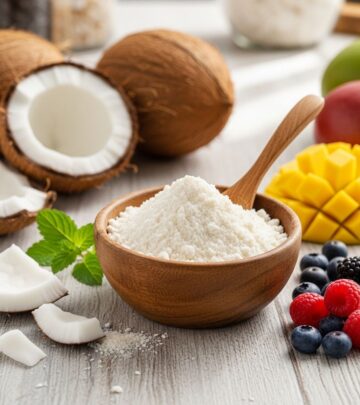Effective Home Remedies to Get Rid of Cough Naturally
Traditional herbs and spices combine to ease irritation and support immune defenses.

Coughing is a common reflex that helps clear your airways of irritants, mucus, and pathogens. While over-the-counter medications provide relief, many people prefer natural home remedies due to their safety, accessibility, and holistic benefits. This article covers a wide range of effective home remedies, dietary suggestions, and prevention tips for cough, based on traditional wisdom and scientific studies.
What Causes a Cough?
A cough may be triggered by factors such as respiratory infections, allergies, asthma, throat irritations, acid reflux, or even dry air. Understanding the root cause guides effective management, but the remedies below can help soothe symptoms, regardless of the underlying trigger.
Top 15 Home Remedies for Cough Relief
1. Honey
Honey is celebrated for its soothing, antibacterial, and anti-inflammatory properties. It coats the throat, alleviating irritation and reducing cough frequency. For adults and children over 1 year, take a teaspoon of honey straight, mix into warm tea, or combine with lemon water. Note: Never give honey to infants under 1 due to risk of botulism.
- Mix 2 teaspoons of honey with herbal tea or warm water for rapid relief.
- Combine with lemon juice to clear nasal congestion.
- Spread on whole-grain bread for a nutritious snack.
2. Ginger
Ginger’s active compounds provide anti-inflammatory and immune-boosting effects. It relaxes airway muscles, soothes the throat, and may help reduce cough due to asthma, infections, or irritation.
- Prepare ginger tea by steeping sliced ginger root in hot water.
- Add honey and lemon for additional benefits.
- Chew fresh ginger for quick relief.
3. Turmeric
Curcumin, the compound in turmeric, fights inflammation and helps with respiratory conditions. Turmeric absorbs best with black pepper, due to piperine enhancing bioavailability.
- Mix 1 teaspoon turmeric and a pinch of black pepper into warm milk or herbal tea.
- Add honey for sweetness and additional throat-soothing properties.
- Drink turmeric tea twice daily during a cough episode.
4. Thyme
Thyme contains compounds (thymol and carvacrol) that relax throat muscles, reduce cough reflex, and lessen inflammation.
- Brew thyme tea for soothing effects.
- Add honey and lemon for improved taste and added benefits.
- Consider thyme-infused steam inhalation.
5. Peppermint
Peppermint’s menthol numbs irritated nerves, relieves pain, reduces the urge to cough, and decongests airways.
- Drink peppermint tea, especially before bed to soothe nighttime coughs.
- Use peppermint essential oil in steam inhalation or aromatherapy.
- Suck on peppermint lozenges for persistent cough.
6. Liquorice Root
Liquorice root tea is traditionally used to soothe sore or dry throat and reduce the urge to cough.
- Use liquorice root tea or throat lozenges as needed.
- Combine with honey for extra relief.
7. Bromelain (Pineapple)
Bromelain, an enzyme found in pineapple, breaks up mucus and calms inflammation. It may help with productive cough and sinus issues.
- Eat 1-2 slices of fresh pineapple daily.
- Drink fresh pineapple juice (about 3.5 ounces, 3 times per day).
- Avoid bromelain if on blood thinners or with certain allergies.
8. Masala Chai Tea
Masala chai combines antioxidant-rich spices like cloves, cardamom, cinnamon, and ginger, which can relieve cough and improve general wellness.
- Brew masala chai with fresh or dried spices.
- Serve with milk or plant-based alternatives.
- Avoid excessive added sugar.
9. Capsaicin (Chili Peppers)
Capsaicin, present in chili peppers such as cayenne, reduces chronic cough by desensitizing airway nerves.
- Add a pinch of cayenne pepper to warm water or tea.
- Gradually increase the dose for tolerance.
- Not suitable for children or those with sensitive stomachs.
10. Saltwater Gargle
Gargling helps soothe throat irritation, reduce swelling, and clear mucus. It’s a simple yet powerful remedy, especially for sore throats due to cough.
- Dissolve 1/4 to 1/2 teaspoon of salt in 8 ounces warm water.
- Gargle for 30 seconds several times daily.
- Not recommended for children under 6.
11. Probiotics
Probiotics foster a healthy gut microbiome, which strengthens immunity and may reduce coughs linked to respiratory infections.
- Consume probiotic-rich foods: yogurt, kefir, sauerkraut, miso soup.
- Consider supplements with advice from a healthcare provider.
- Balanced gut flora can indirectly support respiratory health.
12. Drink Plenty of Fluids
Staying hydrated thins mucus, soothes the throat, and reduces dry cough triggers. Warm liquids offer the best relief.
- Drink water, clear broths, herbal teas, and fruit-infused drinks.
- Avoid sodas and caffeinated drinks that may promote dehydration.
- Chew ice chips to soothe throat discomfort.
13. Steam Inhalation
Steam relieves congestion, loosens mucus, and soothes the respiratory tract.
- Boil water and inhale steam carefully for 5-10 minutes, keeping your face a safe distance above the bowl.
- Add a few drops of eucalyptus or peppermint oil for enhanced relief.
14. Marshmallow Root
Marshmallow root, used in traditional herbal medicine, coats the throat, reduces irritation, and calms coughing spells.
- Drink marshmallow root tea or use lozenges as needed.
- Consult with a healthcare provider if taking medications or if symptoms persist.
15. Warm Soups and Broths
Consuming nourishing soups or broths helps hydrate, soothe the throat, and provides comfort during cold or cough episodes.
- Opt for clear broths: chicken, vegetable, or bone-based.
- Add ginger, garlic, and turmeric for extra anti-inflammatory effects.
Dietary and Lifestyle Tips for Preventing and Managing Cough
- Eat a balanced diet rich in antioxidants, vitamins (especially vitamin C), and minerals to boost immune function.
- Limit exposure to allergens and irritants such as smoke, dust, pollen, and strong perfumes.
- Use air purifiers and humidifiers to maintain clean air and optimal humidity at home, especially during dry seasons.
- Avoid spicy or acidic foods if you have reflux-triggered cough.
- Practice hygiene: Wash hands regularly to prevent viral infections, a common cause of coughs.
- Rest: Get adequate sleep and allow your body to recover fully.
Table: Quick Comparison of Key Remedies and Their Benefits
| Remedy | Main Benefit | Use Frequency | Best For |
|---|---|---|---|
| Honey | Coats throat, reduces cough | 2-3 times daily | Dry cough, sore throat |
| Ginger | Anti-inflammatory, relaxes muscles | 2-3 times daily | Asthma, throat irritation |
| Turmeric | Fights inflammation | 1-2 times daily | Respiratory infections |
| Saltwater Gargle | Soothes throat, reduces swelling | Up to 4 times daily | Sore, irritated throat |
| Peppermint | Decongests, numbs irritation | As needed | Congestion, nighttime cough |
| Bromelain (Pineapple) | Breaks up mucus | 1-3 times daily | Productive cough |
| Probiotics | Boosts immunity, gut health | Daily | Preventive, chronic cough |
Precautions and When to Seek Medical Advice
- If your cough persists for more than a week or is accompanied by high fever, bloody mucus, chest pain, or difficulty breathing, seek medical attention.
- Children under 1 year should not take honey.
- Avoid capsaisin and herbal remedies if you have allergies or are taking certain medications.
- Individuals with chronic health conditions (e.g., asthma, heart disease) should consult their doctor before trying new remedies.
Frequently Asked Questions (FAQs)
Q: Are home remedies safe for everyone?
Many remedies such as honey, ginger tea, and saltwater gargle are generally safe for adults. However, certain remedies, especially honey and herbs, are not suitable for infants or people with specific allergies. Always consult your doctor for individualized advice.
Q: How soon can I expect results from natural cough remedies?
Some remedies, like honey or ginger tea, may provide quick relief for throat irritation. Overall improvement may take several days, depending on the cause of the cough and personal health status.
Q: Are there foods I should avoid while I have a cough?
Avoid foods that can exacerbate cough, such as dairy (if you notice more mucus), spicy or fried foods (if your cough is related to acid reflux), and processed snacks high in sugar or additives. Choose soothing, hydrating, and nutritious options instead.
Q: Can a cough be a sign of something serious?
Persistent coughs, especially those with chest pain, blood in the sputum, shortness of breath, or lasting more than a week, may indicate an underlying medical condition like pneumonia, asthma, or even heart disease. Seek prompt medical evaluation under these circumstances.
Q: Do herbs really work for cough?
Herbs like thyme, peppermint, ginger, and turmeric have scientific and traditional backing for their effectiveness in relieving cough and associated symptoms. However, their effects vary from person to person, and more severe coughs may require medical therapy.
Summary Tips for Managing and Preventing Cough at Home
- Maintain good hydration, rest, and consume a balanced diet rich in fruits, vegetables, and immune support nutrients.
- Incorporate warming herbal teas, natural sweeteners, and spices into your daily routine for proactive cough relief.
- Adopt environmental hygiene measures—clean air, minimal exposure to irritants, and regular handwashing.
- Always listen to your body; if symptoms persist or worsen, consult a doctor promptly.
Sources & Further Reading
- Healthline: 13 Home Remedies for a Dry Cough
- Medanta: Natural Cough Remedies and Prevention Tips
- Mount Elizabeth: How to Stop Coughing Naturally
References
- https://www.healthline.com/health/cold-flu/home-remedies-for-dry-cough
- https://www.medanta.org/patient-education-blog/natural-cough-remedies-and-prevention-tips
- https://www.mountelizabeth.com.sg/health-plus/article/how-to-stop-coughing-naturally
- https://www.medicalnewstoday.com/articles/322394
- https://stvincents.org/about-us/news-press/news-detail?articleId=61192
- https://www.mayoclinic.org/symptoms/cough/expert-answers/honey/faq-20058031
- https://health.clevelandclinic.org/how-to-stop-coughing
- https://www.seattlechildrens.org/conditions/a-z/coughs-meds-or-home-remedies/
Read full bio of medha deb












